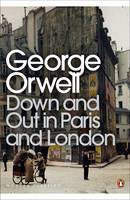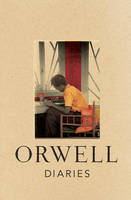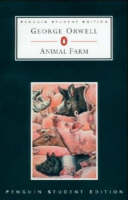The Road to Wigan Pier is another one of those books which has helped me realize the privilege of living in this part of the world, at this point in history, replete with all the technological processes and improvements which make life (somewhat) faster, easier and less painful (think dentists in the early 20th century).
Before I read this book I was discontent due to my plethora of first world problems - the cell phone battery doesn't last long enough. The ending of the TV series The Killing didn't provide enough closure. Forgetting my multiple passwords during technological pursuits. Jesus or Mary didn't appear in the foam of my soy, trim, decaf, extra foam latte ...
But reading this non-fiction work by liberal visionary George Orwell got me sorted, and makes me think twice before I have a first world whinge.
The Road to Wigan Pier is basically a very well-written investigative, political, ideological and sociological commentary into life in industrial Northern England during the 1930s.
It's split into two parts.
First, Orwell manages to detail and depict the rugged (in)human experiences of the working classes who occupy the horrible jobs and houses of Lancashire and Yorkshire in the 1930s. He does this through injecting himself into their environment in an act of heroic, subjective journalism - he takes up lodgings in a cloistered, rank and damp boarding house overfilled with sickly, pallid humans of all ages. It is here he lodges with the unwashed Brooker family, who are basically landlords to a bundle of borderline broke people living in the unsanitary conditions provided by the Brookers. Orwell's Dickensian caricature of the Brookers and their house is quite a laugh - "I have noticed that people who let lodgings almost always hate their lodgers".
However, it becomes not that funny after he enters hellish, chugging coal mines where one works but can barely stand in the cramped cavities, and therefore, spends hours scuttering about in a back-breaking, pooh-stanced, squatting position. The hard work is mesmerizing and leads him to state "If there is one man to whom I myself feel inferior, its is a coal-miner". For what reward? A life fraught with health issues subsequent to the soot...
It is an exercise in raw reportage as he notes his impressions of life, and the horror and squalour of it all through exposing himself directly (as an upper-middle class gent), getting intimate with the toils of everyday life in the working class slums in what was supposed to be enlightened, democratic and civilized England. And that's the point, all this is contrasted against that which is never really detailed in the book, but that which the English and Orwell were familiar with - the lush lifestyles of the upper classes in England, and the fulfilling life which being upper class afforded them.
The second part of the book is a little surprising (to me anyway), because Orwell enters into quite a zealous Socialist spiel. This ideological discussion challenges classist modern England - why should there be classes at all in a democratic environment? However, while being a blatantly biased and ardent presentation on the values of socialism, its important to keep in mind the context in which the piece was written, that is, a time when socialism and liberalism was under threat from the burgeoning support for fascism and totalitarianism in 1930s Europe (and of course Mother England).
But it is apologetic too, as Orwell also criticizes the English Socialist movement for being full of nut-case individuals:
One sometimes gets the impression that the mere words ‘Socialism’ and ‘Communism’ draw towards them with magnetic force every fruit-juice drinker, nudist, sandal-wearer, sex-maniac, Quaker, ‘Nature Cure’ quack, pacifist, and feminist in England.”
Still a very intriguing journey into early 20th century socialist thought from one of England's most celebrated and rational writers and reporters.
Lastly, what I found really interesting about this book is that Orwell discusses the nature of early 20th century progress and the "machine-civilization" which had emerged and preoccupied many thinkers of the time as mechanization and modernization was taking hold of society and changing jobs, gender roles, warfare and human economic and social interaction in general - will machines take all jobs? A 21st century echo anyone?
The machine has got to be accepted, but it is probably better to accept it rather as one accepts a drug - that is, grudgingly and suspiciously. Like a drug, the machine is useful, dangerous and habit-forming. The oftener one surrenders to it the tighter its grip becomes.
More on The Road to Wigan Pier
You can read The Road to Wigan Pier on Project Gutenberg Australia.
The road to Wigan Pier, 75 years on David Sharrock, The Observer, 20 February 2011
Russel Boyce's The Road to Wigan Pier exhibition
In 1984, I was commissioned by the Impressions Gallery, Bradford; to undertake a project that reflected on the themes described by George Orwell in his book, ‘Road to Wigan Pier’.
Search the catalogue for George Orwell














Add a comment to: The Road to Wigan Pier: George Orwell’s early 20th Century musings